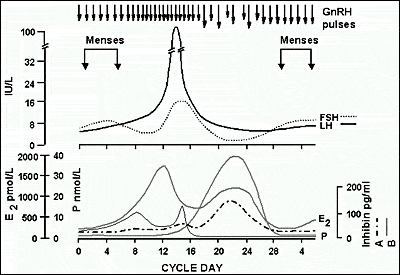Our bodies are inherently wise and are constantly adjusting to promote our survival and the survival of our offspring. The environment and our nutritional status have huge impacts on our fertility, menstrual cycles or lack thereof. Pregnancy, breastfeeding, and rearing children are the biggest energy expenditures of a woman’s life.
During times of lack, our bodies divert our energy away from storage of fat and reproduction to using energy towards other activities such as staying warm and keeping alive. Thus, it’s not necessarily the level of “fatness” that has an impact on reproduction rather energy balance or calories available.
For example in athletic women, although their body mass doesn’t change much in downtimes or during injury their cycles will commonly return with periods of decreased activity. Similarly in sheep, when fed higher quantities of clover or lupins their ovulation rates increase as if it was breeding season.
Women who are very athletic, who participate in overly strenuous exercises or who are underweight commonly have low levels of Leptin, LH, and estradiol. During a regular menstrual cycle, gonadotropin hormone pulses increase prior to ovulation and lead to an increase in pituitary production of FSH and LH, and thus egg development and ovulation. The low levels of leptin may be related to the decrease the production of gonadotropin hormone and thus stop cycling.

Our bodies aim is that our offspring would have the maximum potential for survival.
Ensuring proper energy balance is important for those struggling with weight-related amenorrhea and may be the key to resuming a normal hormone balance. Help and counseling should be considered for those with eating disorders such as anorexia or bulimia. Women who have or who recently had eating disorders are more likely to suffer from difficulties during pregnancy such as increased morning sickness (hyperemesis gravidarum), anemia, growth restriction, preterm labor, and low weight babies. As such it’s in the benefit of the whole family to properly address any food or body image issues. It can be common for irregular meal patterns or low intake in women who are active with work or raising other children. To help boost cycle regularity and support our reproductive health ensure plenty of energy is available to put towards reproduction and menstruation. Using an app to count calories, avoiding skipped meals, ensure plenty of healthy fats are consumed are all great ways to create a positive net energy balance.
To your offspring’s greatest health!
Dr. Guan




